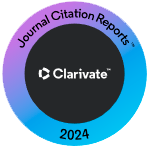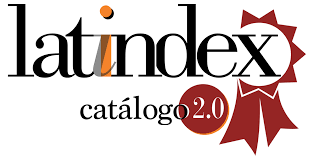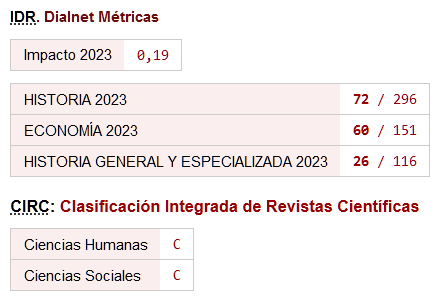Die theoretische Fundierung der Kostenrechnung im Widerstreit der Ansätze
DOI:
https://doi.org/10.26784/issn.1886-1881.v2i3.217Keywords:
Cost accounting, theoretical substantiation, independent cost accounting system, GermanyAbstract
In Germany, a discussion has been in progress for a number of years on the theoretical substantiation and the necessity of an independent cost accounting system. The spectrum of views involved ranges from a complete integration of cost accounting (internal income statement) into the profit and loss statement (external income statement) to as complete a separation as possible of the two income accounting systems. This contribution will represent, from a German standpoint, how the discussion has developed, and what its present state is. The conclusion of this contribution is a recommendation of a theoretically substantiated separation of the two types of income statements. The contribution pursues several different purposes: (a) an identification of the historical roots of the theoretical basis of cost accounting, (b) an account of the problem field of the firm and its structures, (c) a definition of the position of separations and separation theorems, (d) an analysis of perspectives of investigation of a theoretical substantiation, (e) a methodical orientation of cost accounting by the planning and steering system, (f) an account and appreciation of recent contributions on the theoretical substantiation, (g) a theoretical substantiation of an independent cost accounting system.
Downloads
References
Ballewski, A. (1877): Die Calculation von Maschinenfabriken, Magdeburg.
Beaver, W.H. (1998): Financial Reporting: An Accounting Revolution, 3rd Edition, Englewood Cliffs / N. J.
Breid, V. (1994): Erfolgspotentialrechnung - Konzeption im System einer finanz-theoretisch fundierten, strategischen Erfolgsrechnung, Stuttgart.
Dorn, G. (1993): "Geschichte der Kostenrechnung", HWR, hrsg. v. K. Chmielewicz und M. Schweitzer, 3. Aufl., Stuttgart, pp. 722-729.
Ewert, R. and Wagenhofer, A. (2005): Interne Unternehmensrechnung, 6. Aufl., Berlin, Heidelberg.
Feltham, G. A. and Ohlson, J. A. (1995): "Valuation and Clean Surplus Accounting for Operating and Finan- cial Activities", Contemporary Accounting Research, 11, pp. 689-731.
https://doi.org/10.1111/j.1911-3846.1995.tb00462.x
Hax, H. (2002): "Integration externer und interner Unternehmensrechnung", HWU, hrsg. v. H.-U. Küpper und A. Wagenhofer, 4. Aufl., Stuttgart, pp. 758-767.
Kilger, W., Pampel, J. and Vikas, K. (2002): Flexible Plankostenrechnung und Deckungsbei-tragsrechnung,11. Aufl., Wiesbaden. https://doi.org/10.1007/978-3-322-94461-0
Kloock, J. (1981): "Mehrperiodige Investitionsrechnungen auf der Basis kalkulatorischer und handelsrechtlicher Erfolgsrechnungen", zfbf, pp. 873-890.
Kloock, J. (1997): Betriebliches Rechnungswesen, 2. Aufl., Köln.
Küpper, H.-U. (1985): "Investitionstheoretische Fundierung der Kostenrechnung", zfbf, pp. 26-48.
Küpper, H.-U. (1990): "Verknüpfung von Investitions- und Kostenrechnung als Kern einer umfassenden Pla- nungs- und Kontrollrechnung", BfuP, pp. 253-267.
Küpper, H.-U. (1995): "Unternehmensplanung und -steuerung mit pagatorischen oder kalkulatorischen Erfolgs- rechnungen", zfbf, Sonderheft 34, pp. 19-50.
Lücke, W. (1955): "Investitionsrechnungen auf der Grundlage von Ausgaben oder Kosten?", ZfhF, pp. 310-324.
Müller, H. (1996): Prozeßkonforme Grenzplankostenrechnung. Stand-Nutzanwendungen-Tendenzen, 2. Aufl., Wiesbaden.
Pfaff, D. (1994): "Zur Notwendigkeit einer eigenständigen Kostenrechnung", zfbf, pp. 1065-1084.
Preinreich, G. A. D. (1937): "Valuation and Amortization", The Accounting Review, 12, pp. 209-226.
Schiller, U. and Lengsfeld, S. (1998): "Strategische und operative Planung mit der Prozeßkostenrechnung", ZfB, pp. 525-547.
Schmalenbach, E. (1899): "Buchführung und Kalkulation im Fabrikgeschäft", Deutsche Metallindustriezeitung, Jg. 15, Remscheid.
Schmalenbach, E. (1947): Pretiale Wirtschaftslenkung, Band 1: Die optimale Geltungszahl, Bremen-Horn.
Schmalenbach, E. (1948): Pretiale Wirtschaftslenkung, Band 2: Pretiale Lenkung des Betriebes, Bremen-Horn.
Schweitzer, M. (2001): "Die Kosten- und Erlösrechnung zwischen theoretischen Anforderungen und Rechnungswirklichkeit (Offene Fragen der Kostenrechnung)", Jahrbuch für Controlling und Rechnungs-wesen 2001, hrsg. v. G. Seicht, Wien, pp. 159-200.
Schweitzer, M. (2002): "Unternehmensrechnung, Gestaltung und Wirkungen", HWU, hrsg. v. H.-U. Küpper und A. Wagenhofer, 4. Aufl., Stuttgart, pp. 2017-2030.
Schweitzer, M. (2005): "Planung und Steuerung", Allgemeine Betriebswirtschaftslehre, hrsg. v. F. X. Bea, B. Friedl und M. Schweitzer, Bd. 2, 9. Aufl., Stuttgart, pp. 16-139.
Schweitzer, M. and Küpper, H.-U. (2003): Systeme der Kosten- und Erlösrechnung, 8. Aufl., München.
Schweitzer, M. and Ziolkowski, U. (1999): "Interne Unternehmungsrechnung: aufwands-orientiert oder kalku- latorisch?" Sonderheft 42 der zfbf, hrsg. v. M. Schweitzer und U. Ziolkowski, Düsseldorf, Frankfurt/M.
Seicht, G. (1963): "Die stufenweise Grenzkostenrechnung. Ein Beitrag zur Weiterentwicklung der Deckungsbei- tragsrechnung", ZfB, pp. 693-709.
Stadtler, H. / Kilger, C. (ed.) (2005): Supply Chain Management and Advanced Planning, 3rd Edition, Berlin / Heidelberg.
https://doi.org/10.1007/b106298
Tolkmitt, H. (1894): Grundriß der Fabrik-Geschäftsführung, Leipzig.
Published
How to Cite
Issue
Section
License
Copyright (c) 2022 Marcell Schweitzer

This work is licensed under a Creative Commons Attribution-NonCommercial-ShareAlike 4.0 International License.










